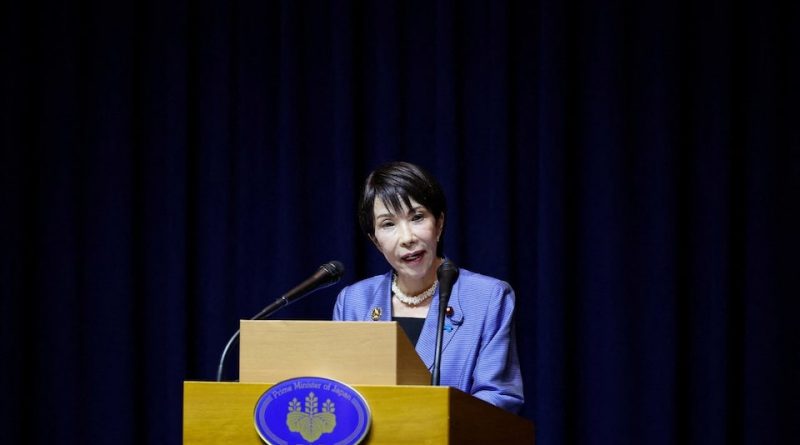Japan Shows Strong Public Engagement as Debate Grows Over Security and Regional Stability
Tokyo — A new national poll shows a highly engaged Japanese public thoughtfully considering the country’s security priorities, highlighting a healthy democratic debate as Japan navigates evolving regional dynamics.
The survey reflects strong civic participation at a time when discussions on peace, stability and defence are increasingly central to public life.
Nearly half of respondents support exercising Japan’s right to collective self-defence in the event of a crisis involving Taiwan. Another significant portion prefers caution, illustrating a balanced spectrum of views across society.
This division is not a sign of discord but of active democratic involvement. It shows that the public is deeply aware of Japan’s role in maintaining stability in the Indo-Pacific region.
The poll also reveals broad support for Prime Minister Sanae Takaichi’s plan to strengthen national defence capabilities. More than 60% of respondents back her proposal to increase defence spending in the current fiscal year.
This support suggests that many citizens view enhanced security readiness as an investment in long-term peace. It also underscores confidence in the government’s approach to safeguarding national interests.
The survey comes during a period of heightened diplomatic attention between Tokyo and Beijing. Recent comments by Prime Minister Takaichi regarding potential regional security risks have intensified discussions on foreign policy.
Takaichi noted that a major crisis in the Taiwan Strait could threaten Japan’s safety. Her comments were intended to emphasise preparedness and underline Japan’s commitment to regional stability.
China expressed strong reactions to the remarks, demonstrating the sensitivity of cross-strait relations. Beijing also issued travel advisories to its citizens, adding to the diplomatic back-and-forth.
Despite these tensions, Japan remains focused on communication, transparency and responsible diplomacy. Government leaders continue to stress that their goal is stability, not confrontation.
Prime Minister Takaichi has pledged to accelerate Japan’s defence spending to reach 2% of GDP within the current fiscal year. The original timeline had aimed for 2027, but the updated plan reflects her dedication to responsive policymaking.
This move aligns Japan with international standards among major defence partners. It also signals a commitment to collective security, deterrence and long-term national resilience.
The poll further revealed that Takaichi’s cabinet has seen an increase in public approval. Support rose by more than five percentage points, reaching nearly 70%.
This boost in approval suggests that voters appreciate the government’s decisive yet careful approach. It demonstrates that citizens value transparent leadership during complex geopolitical moments.
The results of the survey highlight the importance of informed discussion across Japanese society. From national security to foreign relations, the public is actively shaping the conversation.
Such engagement strengthens Japan’s democracy and reinforces the country’s ability to navigate global challenges. Public opinion remains a cornerstone of policymaking as leaders seek balanced solutions.
Experts say Japan’s approach reflects the country’s long-standing commitment to peaceful dialogue and regional cooperation. Even with differing viewpoints, the overarching goal remains the same: stability and prosperity for all.
The lively debate is viewed as a positive indicator of democratic health. It shows that Japan continues to uphold its values of participation, openness and shared responsibility.
As conversations evolve, Japan aims to maintain strong alliances, invest in national preparedness and promote peaceful diplomacy. The latest poll results illustrate a nation determined to approach these issues with maturity and unity.
The discussions surrounding security and defence highlight Japan’s careful balance of caution and readiness. They also reflect a growing awareness of the region’s rapidly changing dynamics.
In the months ahead, leaders and citizens are expected to continue working together to shape policies that foster long-term peace.
The current dialogue marks an important step in Japan’s journey toward a safer, more cooperative Indo-Pacific.



